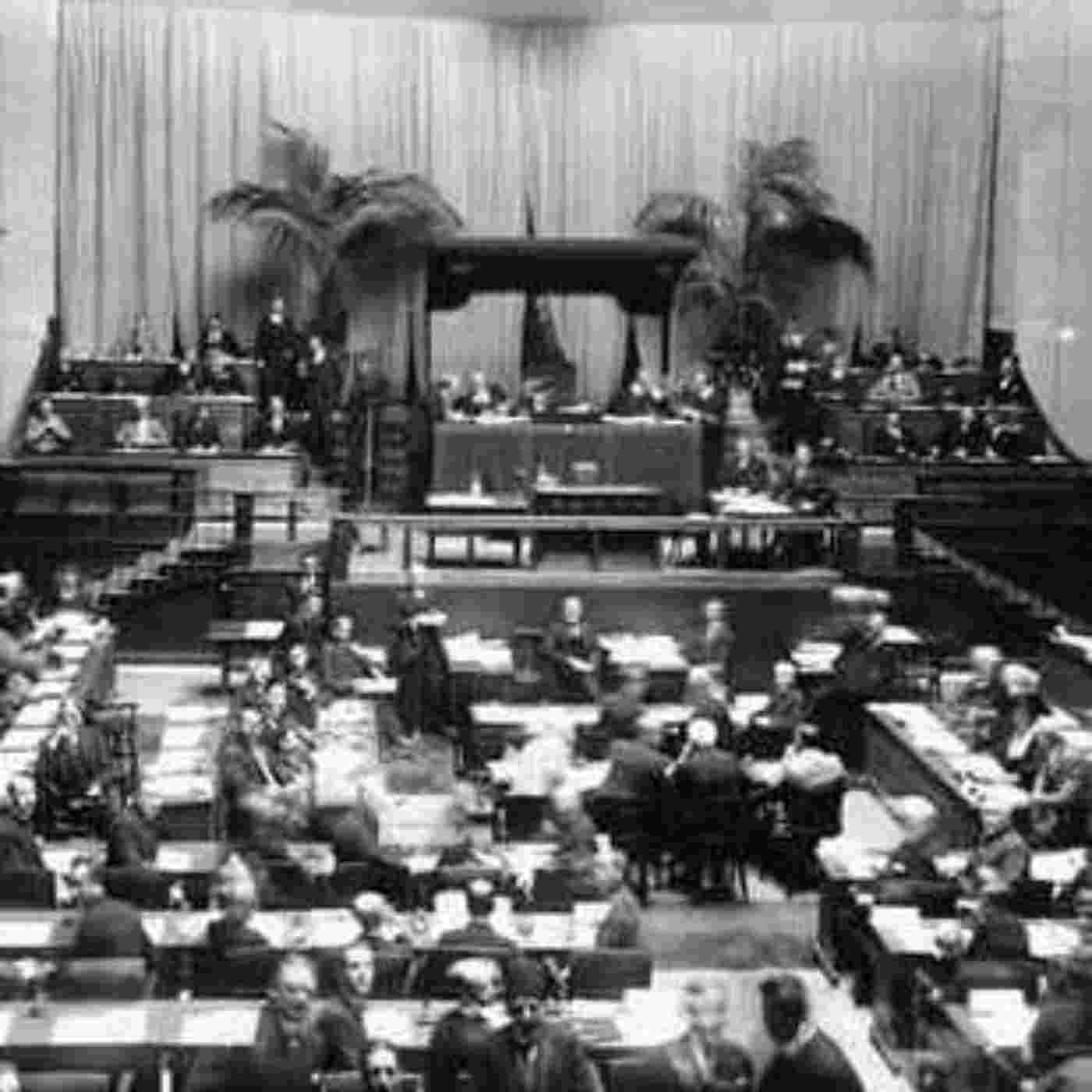
Find here all the rare interviews of the geneveMonde.ch editorial staff, the collaborative platform on the history of international Geneva, and the exceptional documents coming from the archives of the international organizations based in Geneva and digitized by us, the audio contents of the geneveMonde.ch thematic files as well as our various Sounds of History podcasts The interviews and podcasts are produced by the historian Véronique Stenger and the journalist David Glaser.
---
Retrouvez ici tous les entretiens rares de la rédaction de geneveMonde.ch, la plateforme collaborative sur l'histoire de la Genève internationale, et les documents exceptionnels venus des archives des organisations internationales installées à Genève et numérisées par nos soins, les contenus audio des dossiers thématiques de geneveMonde.ch ainsi que nos différents podcasts Sounds of History/Sons d'Histoire. Les entretiens et les podcasts sont produits par l'historienne Véronique Stenger et le journaliste David Glaser.
Copyright FONSART 2023
Hébergé par Acast. Visitez acast.com/privacy pour plus d'informations.
Find here all the rare interviews of the geneveMonde.ch editorial staff, the collaborative platform on the history of international Geneva, and the exceptional documents coming from the archives of the international organizations based in Geneva and digitized by us, the audio contents of the geneveMonde.ch thematic files as well as our various Sounds of History podcasts The interviews and podcasts are produced by the historian Véronique Stenger and the journalist David Glaser.
---
Retrouvez ici tous les entretiens rares de la rédaction de geneveMonde.ch, la plateforme collaborative sur l'histoire de la Genève internationale, et les documents exceptionnels venus des archives des organisations internationales installées à Genève et numérisées par nos soins, les contenus audio des dossiers thématiques de geneveMonde.ch ainsi que nos différents podcasts Sounds of History/Sons d'Histoire. Les entretiens et les podcasts sont produits par l'historienne Véronique Stenger et le journaliste David Glaser.
Copyright FONSART 2023
Hébergé par Acast. Visitez acast.com/privacy pour plus d'informations.

Last part of our interview with historian Thomas Gidney, time to talk about the fear of a real move for certain UN agencies located to Geneva to other places in the world. Relocating agencies had significant logistical and human consequences. Thousands of employees were affected recently, and the loss of centralized hubs reduced coordination efficiency. Thomas emphasizes that the value of central offices lies not only in their physical presence but in fostering collaboration, knowledge-sharing, and institutional culture. Losing this centrality weakened decision-making and diminished the influence of organizations in global affairs. In fact, the League of Nations, despite its ultimate failure to prevent global conflict, represented a milestone in international cooperation. With the United Nations, Geneva became a central hub, hosting several thousand employees whose proximity created a unique network effect. Having the right specialists in the right room allowed for efficient coordination and rapid knowledge exchange. When some agencies will be relocated to Vienna, Lisbon, or even Qatar, this concentration of expertise will be lost. Thomas emphasizes that these relocations will weaken institutional memory and operational efficiency, showing how central hubs shape the effectiveness of international organizations.
International Anomalies vs. Geopolitics and Membership Dynamics
Thomas’s work highlights “international anomalies” within early institutions. The League of Nations included colonial territories in ways that defied conventional notions of sovereignty, reflecting both ambition and limitation. These structural oddities show how geopolitics and power imbalances shaped participation and representation, a theme that continues to resonate in modern international diplomacy. The transition from the League to the UN brought new membership complexities. Belarus and Ukraine attended the San Francisco Conference decades before their independence in 1991, while Taiwan-Chinese Taipei’s status underscores ongoing challenges in international recognition. Notably, no member state has ever formally left the UN, reflecting the organization’s enduring legitimacy. Stalin’s insistence on collective Soviet representation, alongside the autonomy of regions like New Caledonia, illustrates the tensions between sovereignty, autonomy, and inclusion that shaped the postwar world.
geneveMonde.ch would like to thank Thomas Gidney for his invaluable insights into the evolution of international organizations such as the League of Nations and the United Nations, as well as on the dynamics of membership, recognition, and inter-agency coordination.
Interview by David Glaser
Photo of the First Assembly of the League of Nations opened in Geneva, in presence of delegates from 41 States in 1920 (UN Archives). It was the first gathering of nations under a permanent agreement made in advance and the first direct contact of the majority of the member states with the League which they had joined. The bulk of the Assembly's work was the building of the League’s structural framework. The success depended upon how 41 states - big and small - would work together.
Hébergé par Acast. Visitez acast.com/privacy pour plus d'informations.